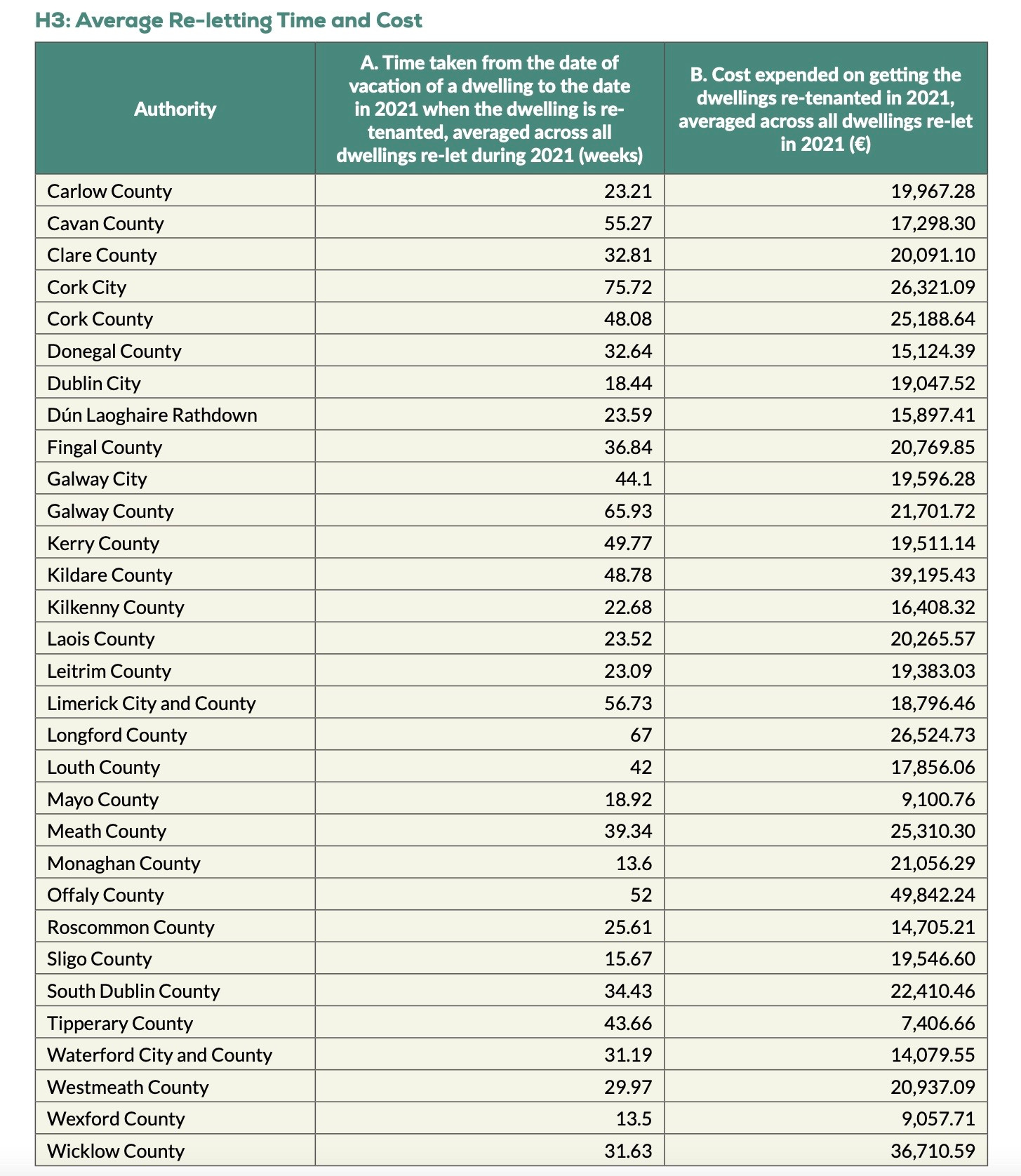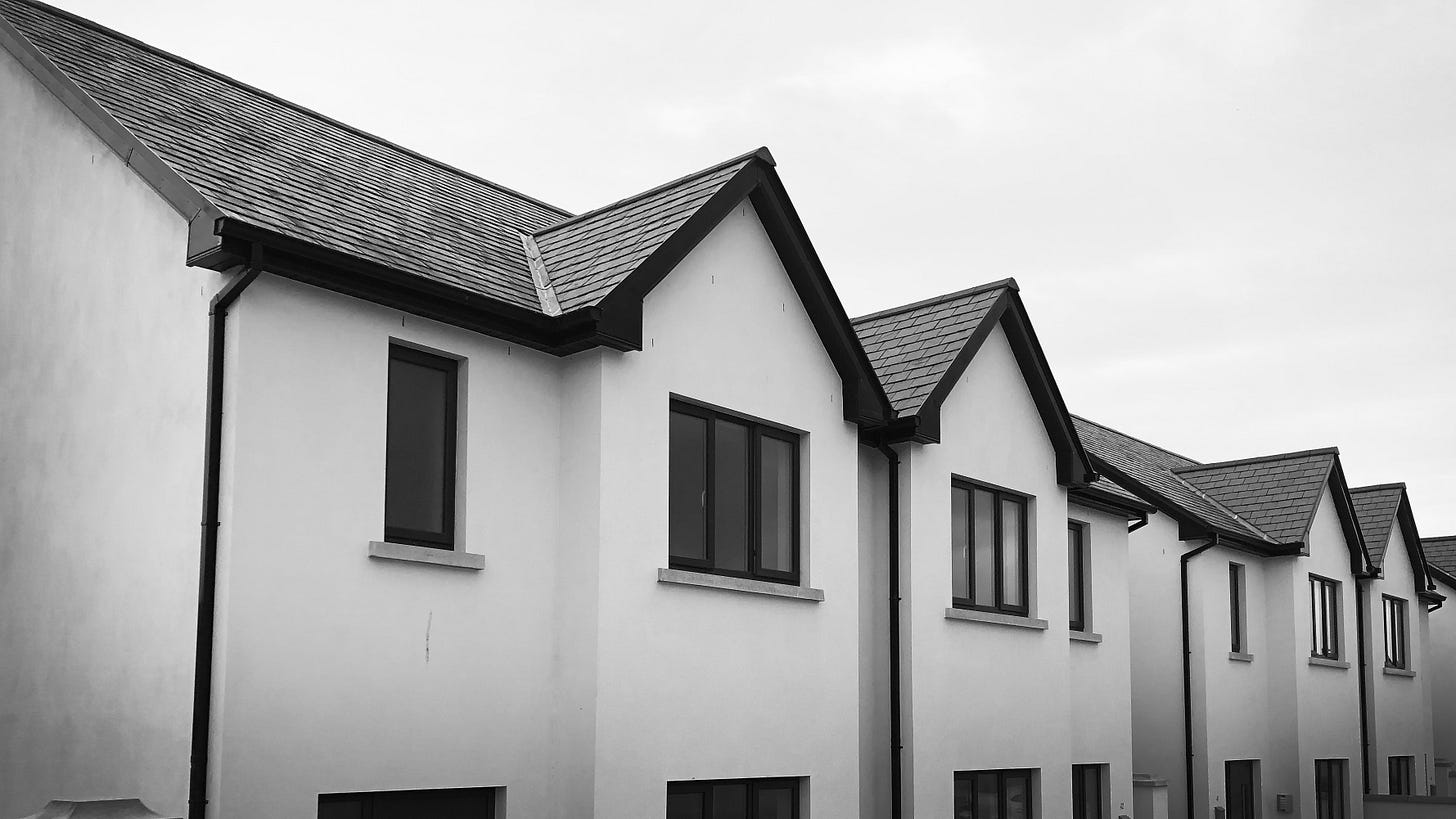Cork City Council "taking steps" to improve social housing vacancy time
Cork city was the worst local authority in the country for the time taken to re-let social housing in 2021, but they say they have improved this time in 2022...to just over a year.
Cork City Council have responded to last week’s report that found social housing rented in 2021 had been vacant for an average of a year and a half before re-letting.
They say they have improved on their turnaround time for renovations and re-letting, and have reduced it to 59 weeks in 2022.
Council houses that were re-let during 2021 in Cork city had lain empty for an average of 75 weeks, according to a report into the performance of local authorities published by the Department of Housing and Local Government, Tripe + Drisheen reported last Friday.
“A comprehensive effort is being made to improve the turnaround time and 2021 has already resulted in a nine week turnaround improvement from 2020, and as of October 2022 the reletting time is down to 59 weeks,” a council PR representative told Tripe + Drisheen by email.
“Although still a long period, based on process and system improvements planned and underway the City Council is confident it will deliver an increased reduction in the turnaround time through to the end of 2022 and beyond.”
Exactly why Cork City Council was the worst-performing local authority in the country for renovation and re-letting times was unclear.
Cork County was re-letting social housing at over the national average time of 34.44 weeks: it took 48 weeks for county council social housing to be re-let in 2021.

“It is important to note that the published reletting time includes the time taken to both repair and upgrade vacated properties to an acceptable letting standard and to relet those properties in line with the City Council's scheme of lettings,” the council PR person told Tripe + Drisheen.
“In some cases, a property could be in need of serious repair and upgrade, due to its age, condition (e.g. fire damage) and the opportunity available to provide for significant energy upgrade or modification for disability etc.”
However is it unclear whether properties in Cork City Council are being returned in worse condition than those in other Irish local authorities.
The response received by Tripe + Drisheen also cited the “uptake and acceptance by applicants on the social housing list” as a reason for delays, but again, it is unclear why this would be impacting Cork City Council more than other local authorities in the country.
“Disappointing and frustrating”
Councillor Tony Fitzgerald, the chair of Cork City Council’s Housing Committee, said the report was “very disappointing and indeed frustrating in terms of making properties available to applicants and those who require a transfer.”
Cllr Fitzgerald said the city council’s housing department was facing “a number of challenges” in reducing vacancy times for social housing. He said recruiting staff was an issue as was “the number of refusals” on the Choice Based Letting system.
The number of people on the social housing list that are refusing offered properties on the Choice Based Letting system has doubled over the past four years, it was reported in February of this year.
“Ongoing reviews and discussions regarding the allocation CBL system, which is key to this issue, will remain on the agenda,” Cllr Fitzgerald said.
24 properties returned each month
“I understand that over 24 properties a month are returned to Cork City Council,” Cllr Fitzgerald told Tripe + Drisheen.
Cork City Council was also spending €7,000 more than the national average of €19,653.39 to renovate and upgrade vacant social housing. Cllr Fitzgerald said the council’s 10,403 social housing units contained “a considerable amount of properties of an older stock that require substantial works in terms of bringing the properties up to the highest standards.”
However, other than the amount spent in different local authorities, it is difficult to gauge the comparative age and condition of housing stock in different local authorities.
Cllr Fitzgerald said reducing the amount of time social housing was vacant for would remain a priority for the council.
“Both elected members and housing officials regularly discuss this issue and we’re committed to aggressively addressing this, for the benefit of those who need housing,” he said.





